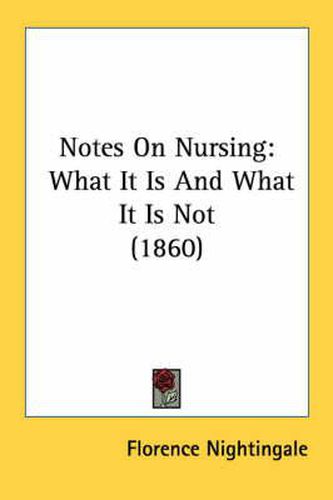Readings Newsletter
Become a Readings Member to make your shopping experience even easier.
Sign in or sign up for free!
You’re not far away from qualifying for FREE standard shipping within Australia
You’ve qualified for FREE standard shipping within Australia
The cart is loading…






First published in 1860, this short work was developed by nursing pioneer Florence Nightingale for use at her training school in England, but it is meant for anyone entrusted with the well-being of another and offers commonsense suggestions for all caregivers charged with looking after the sick and injured. While some of the information is dated, there remains a wealth of timeless advice, as well as an intimate peek into a moment in medical history. Topics covered include: . ventilation and warming . noise . bed and bedding . light . cleanliness . and the benefit of variety in a patient’s surroundings British nurse and teacher FLORENCE NIGHTINGALE (1820-1910) established the Nightingale Training School in 1860 and transformed nursing from a profession for poor women into a noble occupation. She was awarded the Order of Merit by the Queen of England in 1907 for her contributions to medicine.
$9.00 standard shipping within Australia
FREE standard shipping within Australia for orders over $100.00
Express & International shipping calculated at checkout
First published in 1860, this short work was developed by nursing pioneer Florence Nightingale for use at her training school in England, but it is meant for anyone entrusted with the well-being of another and offers commonsense suggestions for all caregivers charged with looking after the sick and injured. While some of the information is dated, there remains a wealth of timeless advice, as well as an intimate peek into a moment in medical history. Topics covered include: . ventilation and warming . noise . bed and bedding . light . cleanliness . and the benefit of variety in a patient’s surroundings British nurse and teacher FLORENCE NIGHTINGALE (1820-1910) established the Nightingale Training School in 1860 and transformed nursing from a profession for poor women into a noble occupation. She was awarded the Order of Merit by the Queen of England in 1907 for her contributions to medicine.